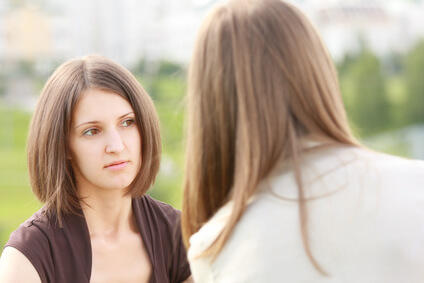For the past few years, I’ve been interviewing adults about their adolescent experiences. I always ask, “What did your parents tell you about sex?” Ninety-five percent of the time the answer is, “Nothing.”
I remember the one and only time the topic of sex came up in conversation with my parents. I was sitting on my bed reading a book and my mother stopped at my door.
“You know about sex, don’t you?” she asked.
Her bolt-out-of-the-clear-blue-sky question took me by surprise – and embarrassed me. I didn’t know what to say. I thought I knew some things. After all, my buddies and I talked about it endlessly.
So I smiled at her and said, “Sure, Mom.” And she went on her way, just as I hoped she would. In retrospect, I guess she thought she had done her job. She could tell my dad that we had “the talk.” Indeed, the subject never came up again.
The good news – None of my pre-marital sex partners got pregnant, and we didn’t contract any diseases. But it wasn’t because I was informed or exercised good judgment. I was lucky. Because bout 10,000 teens contract a sexually transmitted disease every day. And nearly 2,500 teen girls get pregnant every day.
Over 70% of teens have had sex, whether or not they’ve taken vows of chastity in their church, and even though 50% of their parents believe they haven’t.
Where do you stand?
Which do you want kids to believe about human sexuality?
A. It’s a nasty, dangerous aspect of teen culture that you need to protect yourself from at all costs.
B. It’s a natural part of who you are that you need to learn about so you can treat it with respect and responsibility.
Should adults give teens full information about sex?
A. No, you’d just be tantalizing them and teaching them how to get in trouble.
B. Yes, because it’s a health issue. Without understanding how to take care of themselves, kids are likely to get in trouble.
If a girl finds out that a guy carries a condom, she should conclude…
A. He’s a creep or a pervert, because he’s probably looking for a chance to use it.
B. He’s responsible, because he wants to avoid STDs or getting a girl pregnant.
You can see that sex education is a polarizing issue, at least in the U.S. The documentary contrasts American culture with European cultures, which handle the issue differently.
If you want to know where I stand…
Kids aren’t getting the information they need. And when they get it, often it’s too little too late.
I think sex education should be a health issue. If churches get involved, they should be doing all they can to give full information to teens. The goal should be to dramatically reduce the incidence of unprotected teen sex, teen pregnancies, and cases of STD.
The whole point of the teen years is to help kids learn how to be responsible, successful, happy and independent adults. How can they learn how to handle sex decisions and responsibility without practicing it while they’re growing up? Do we really want teens to learn about sex from other teenagers, rather than from adults?
The best case scenario, in my opinion: Parents talk frankly about sex, intimate relationships, responsibility and health issues, encouraging the child to avoid all the risks by postponing sexual intercourse until the child is mature enough to responsibly manage an intimate relationship.
The next-best scenario: The child decides to have sex in a loving relationship and the parent-child relationship is strong enough that parents can be consulted.
Some parents are doing a better job of talking about sex these days, but they’re going against the grain of our culture. Other parents still find it awkward to talk about sex with their kids, so they put off doing it.
Like my parents.
More truth-telling about teen sex.
 Making smart choices about sex requires good judgment. More about this in my new book: How Your Teen Can Grow a Smarter Brain.
Making smart choices about sex requires good judgment. More about this in my new book: How Your Teen Can Grow a Smarter Brain.
You can grow the bond with your child through better listening. Download the FREE ebook, Listening to Understand.

